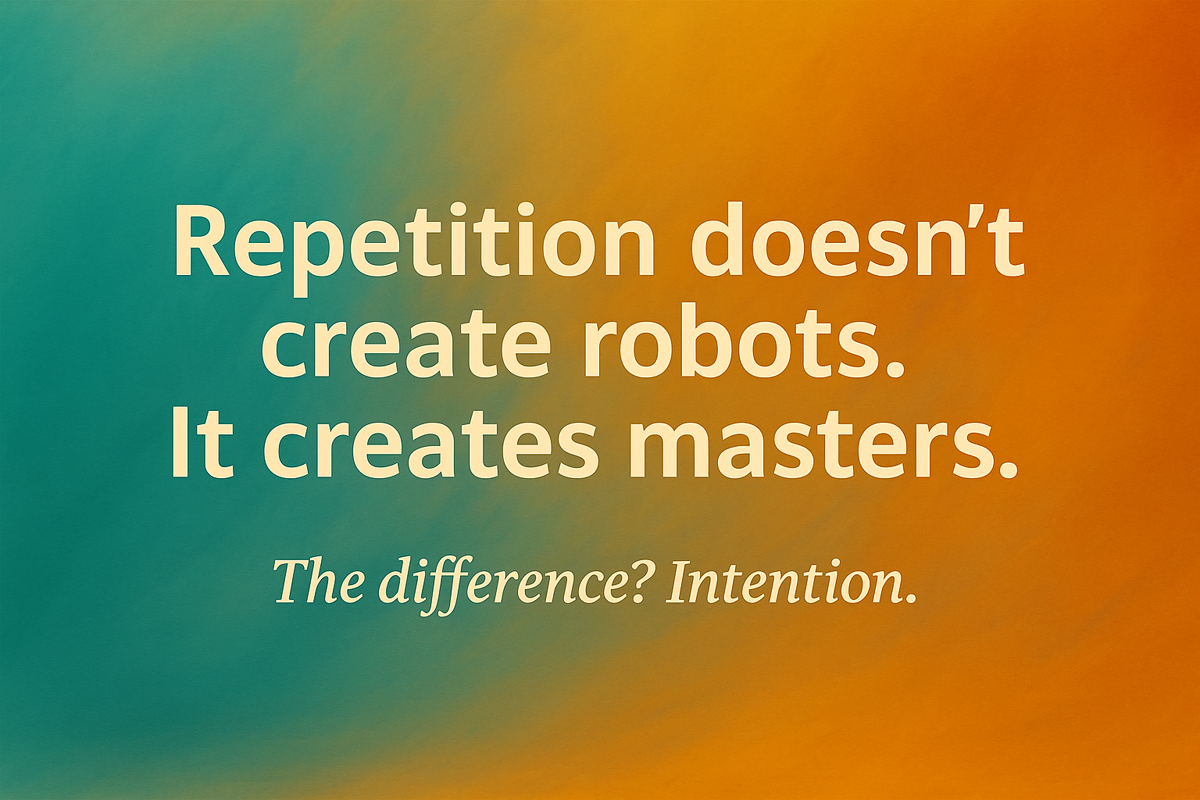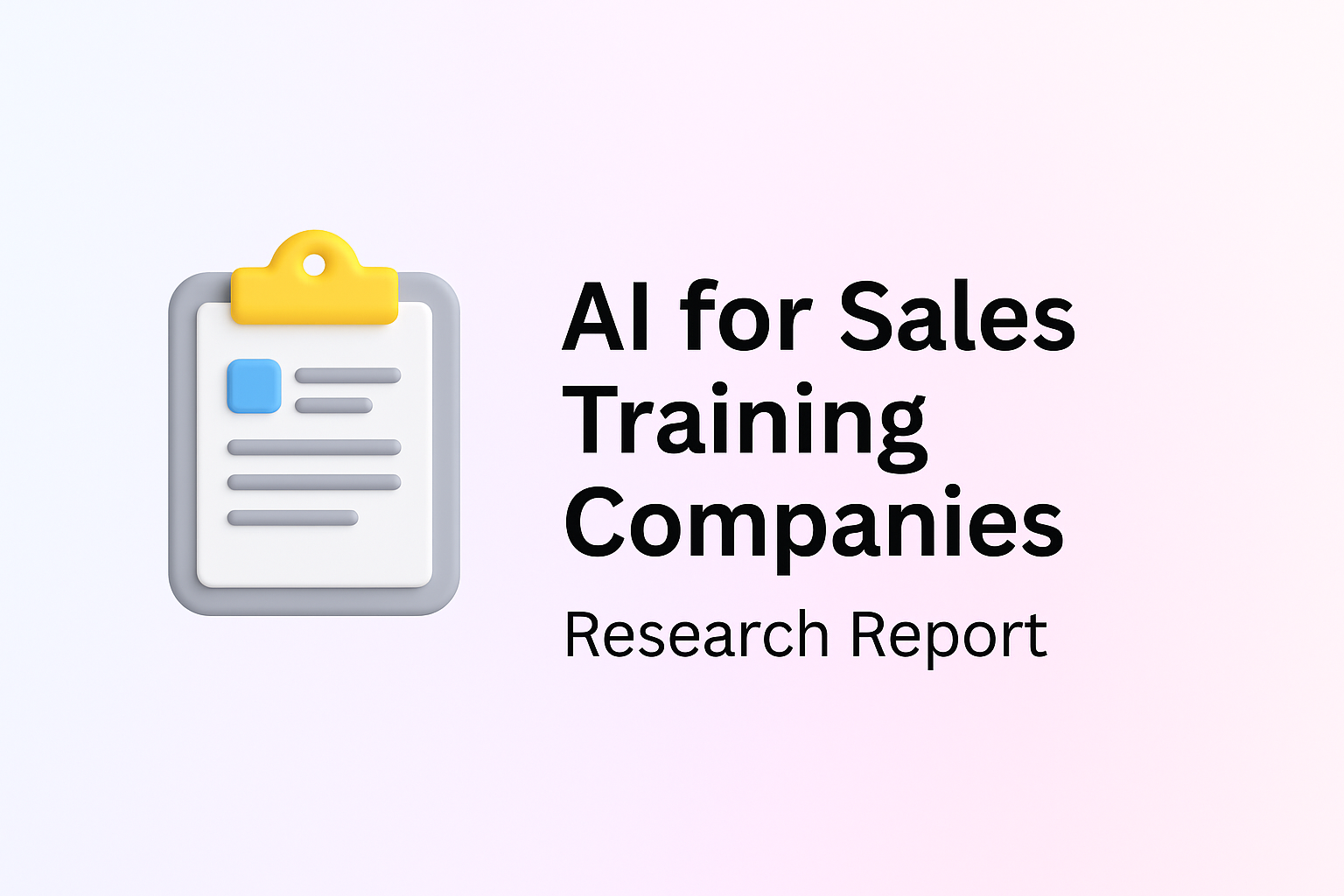· Ivelin Kozarev · Sales Training · 6 min read
Beyond the Classroom - How Two Sales Academies Solved Their Biggest Training Challenges
Two sales academy directors faced devastating problems - inconsistent demos and 40% early attrition. Here's how they used AI roleplay to transform their programs with concrete results.

[Note: Academy names have been anonymized pending permission approvals]
Sarah had never worked in professional sales before. When she joined the financial services academy’s 6-week intensive program, she was terrified of failing in front of her 37 classmates.
“I could fail privately and learn without embarrassment,” she said about practicing with AI prospects instead of peers.
But what Sarah didn’t know was that her training director was watching the data. Sarah completed 47 practice sessions in her first two weeks, with steadily improving scores. The academy director knew Sarah would succeed before Sarah even realized it herself.
The Three Crisis Points Every Academy Director Faces
Every sales academy director we interviewed identified the same three critical challenges that determine whether their programs succeed or fail:
The Engagement Crisis
Walk into any sales academy classroom and you’ll see it. Restless faces. Glazed eyes. People checking phones.
Salespeople are action-oriented. They get antsy sitting through theoretical content. Academy directors consistently name “low engagement” as one of their biggest challenges.
New hires learn concepts but can’t put them in context without experiencing them firsthand. They memorize product features but can’t handle objections. They understand sales methodology but freeze when a prospect goes off-script.
The brutal truth? Boredom kills retention.
The Practice Problem
Here’s what’s happening behind closed doors at most academies:
- Information overload hits new hires like a fire hose
- Limited chances for safe practice before live customer calls
- Only 26% of companies customize training based on individual strengths and weaknesses
- Mixed experience levels in cohorts create chaos - fresh graduates sitting next to experienced hires
- Providing consistent feedback across 30-40 person classes becomes impossible
But here’s the most devastating statistic: Gartner research shows that 80% of sales training is forgotten within a month. This “forgetting curve” means that without immediate, repeated practice, even the best classroom content simply doesn’t stick.
Academy leaders struggle with the core question:
“How do we tailor training for each individual to maximize their success?”
It’s nearly impossible at scale.
The ROI Pressure
The numbers are sobering:
- Only 60% of new sales hires stay at least six months
- Nearly half of academy leaders have seen reps quit due to onboarding stress
- Executive scrutiny on time-to-productivity metrics intensifies quarterly
Academy directors must justify massive training investments while watching talent walk out the door.
Academy A: When Demos Fall Apart
A B2B technology company runs a 3-month sales academy, training 15-20 new hires per quarter on complex enterprise software. Their training director faces the same frustrating reality every quarter.
Despite months of intensive product training, new reps give wildly inconsistent demos.
When listening to calls on Gong, the pattern becomes painfully clear. Some reps dive deep into technical specifications with C-suite executives who just want business outcomes. Others stay too high-level with technical buyers who need to understand implementation details.
“They memorize features but can’t read the room,” the training director explains. “I watch demo after demo fail because they can’t adapt.”
The Skylar Solution
They implemented Skylar’s AI roleplay platform, creating personas representing different buyer types:
- The skeptical CFO focused on ROI
- The detail-oriented IT director asking technical questions
- The time-pressed VP wanting executive summaries
Skylar adapts the difficulty level of each roleplay based on the learner’s progress. Beginners start with straightforward scenarios, while advanced reps face complex objections and multi-stakeholder dynamics.
New hires now practice the same demo 15+ times with different AI personalities. They learn to recognize buying signals and adjust their approach in real-time.
The Breakthrough
Something unexpected happens. Reps start asking to “stay more” in training sessions. They finally understand the why behind what they’re learning.
“They practice the actual skills much more, many times more than they would ever be able to before,” says the training director. “Seeing what works and what doesn’t work in real-time makes them significantly more confident.”
Results That Matter
- Manager feedback scores on demo quality are 65% higher than before
- Call recording analysis shows 40% fewer instances of mismatched messaging to buyer type
- New hire confidence scores before first real demos now average 7.8/10 (up from 3.2/10)
Academy B: Predicting Who Will Make It
The financial services academy has a different problem entirely. They run 6-week intensive programs for 30-40 new advisors per cohort. Most have never worked in sales before.
The devastating reality: Only 45% of new hires were still at the company after their first year. In an industry where long-term success is measured by retention, this was a costly problem.
But here’s what frustrated the training director most: They couldn’t predict who would build a lasting career.
Traditional role-plays with peers are almost frowned upon - people don’t want to do them. There was no real way to gauge effort or aptitude early on.
The AI Discovery
Using Skylar, new advisors can now practice client conversations privately with AI prospects. But the real breakthrough isn’t just the practice itself - it’s the data.
The academy can now see exactly who’s putting in effort and who isn’t.
Those who engage heavily with AI practice sessions and show improving scores are the ones who stay and succeed. Those who barely practice or show flat performance curves? They’re the ones likely to not make it.
“We can quickly spot who will be successful,” says the training director, “by looking at both the quality of their scores and the quantity of their practice sessions.”
Sarah’s Story Continued
Remember Sarah? Her 47 practice sessions in two weeks wasn’t just about comfort. The data showed her dedication before anyone else recognized it.
Sarah went on to become one of the top performers in her cohort.
The Numbers
First-year retention has improved from 45% to 65%. Not just because of better training, but because academy directors can now identify and support advisors who are building the skills for long-term success.
The Unexpected Goldmine
What started as a practice solution became something much more valuable: a data-driven training optimization system.
Both academies discovered something they didn’t anticipate: Skylar’s roleplay data has become their training optimization goldmine.
What they can now see:
- Who’s falling behind on specific skills
- Top performers ready for advanced opportunities
- Exactly which training materials correlate with better performance
How they’re using this data:
- Creating new scenarios targeting common weakness patterns
- Updating content based on real performance gaps
- Continuously refining curriculum based on actual results
Transform Your Sales Academy with Skylar
Ready to see if your academy could achieve similar results with AI-powered roleplay training?
Contact us to discuss a Skylar pilot program for your sales academy.



